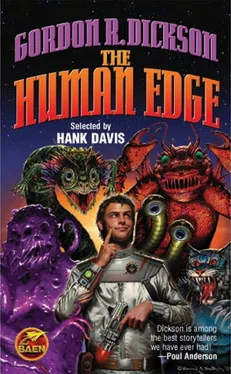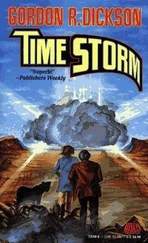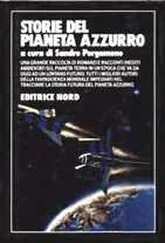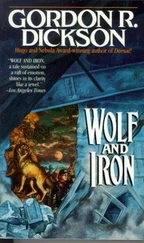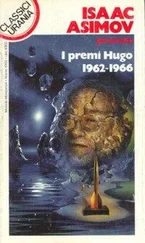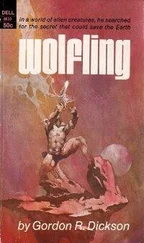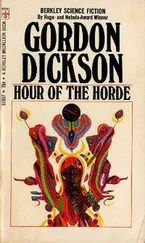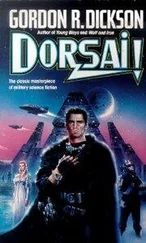Cal immediately hauled taut on the line, drew a knife from his belt and, reaching as far down as possible, cut the line.
* * *
The rope end fell in coils at the alien’s feet. The alien was still staring upward as Cal turned and went as quickly as he could to the center of the cup-shaped depression.
The wind had all but died. In the semi-enclosed rock depression the reflected radiation of the star overhead made it hot. Cal unsnapped his pack and let it drop. He stripped off the gloves of his warmsuit and, kneeling, began to open up the pack. His ears were alert. He heard nothing from outside the tower, but he knew that he had minutes at most.
He laid out the three sections of the silver-plated Messenger, and began to screw them together. The metal was warm to his touch after being in the sun-warmed backpack, and his fingers, stiff and cramped from gripping at handholds, fumbled. He forced himself to move slowly, methodically, to concentrate on the work at hand and forget the alien now climbing the tower wall with a swiftness no human could have matched.
Cal screwed the computer-message-beacon section of the nose tight to the drive section of the middle. He reached for the propulsive unit that was the third section. It rolled out of his hand. He grabbed it up and began screwing it on to the two connected sections.
The three support legs were still in the pack. He got the first one out and screwed it on. The next stuck for a moment, but he got it connected. His ear seemed to catch a scratching noise from the outside of the tower where the alien would be climbing. He dug in the bag, came out with the third leg and screwed it in. Sweat ran into his eyes inside the mask faceplate, and he blinked to clear his vision.
He set the Messenger upright on its three legs. He bent over on his knees, facemask almost scraping the ground to check the level indicator.
Now he was sure he heard a sound outside on the wall of the tower. The leftmost leg was too long. He shortened it. Now the middle leg was off. He lengthened that. He shortened the leftmost leg again… slowly… there, the Messenger was leveled.
He glanced at the chronometer on his wrist. He had set it with the ship’s chronometer before leaving. Sixty-six ship’s hours thirteen minutes, and… the sweep second hand was moving. He fumbled with two fingers in the breast pocket of his warmsuit, felt the small booklet he had made up before leaving and pulled it out. He flipped through the pages of settings, a row of them for each second of time. Here they were… sixty-three hours, thirteen minutes—
* * *
A gust of wind nipped the tiny booklet from his stiffened fingers. It fluttered across the floor of the cup and into a crack in the rock wall to his right. On hands and knees he scrambled after it, coming up against the rock wall with a bang.
The crack reached all the way through the further wall, narrowing until it was barely wide enough for daylight to enter—or a booklet to exit. The booklet was caught crossways against the unevenness of the rock sides. He reached in at arm’s length. His fingers touched it. They shoved it a fraction of an inch further away. Sweat rolled down his face.
He ground the thickness of his upper arm against the aperture of the crack. Gently, gently, he maneuvered two fingers into position over the near edge of the booklet. The fingers closed. He felt it. He pulled back gently. The booklet came.
He pulled it out
He was back at the Messenger in a moment, finding his place in the pages again. Sixteen hours—fourteen minutes—the computer would take four minutes to warm and fire the propulsive unit.
A loud scratching noise just below the lip of the depression distracted him for a second.
He checked his chronometer. Sixty-three hours, sixteen minutes plus… moving on toward thirty seconds. Make it sixty-three hours sixteen minutes even. Setting for sixty-three hours, sixteen minutes plus four minutes—sixty-three hours, twenty minutes.
His fingers made the settings on the computer section as the second hand of his chronometer crawled toward the even minute…
There.
His finger activated the computer. The Messenger began to hum faintly, with a soft internal vibration.
The sound of scraping against rock was right at the lip of the depression, but out of sight.
He stood up. Four minutes the Messenger must remain undisturbed. Rapidly, but forcing himself to calmness, he unwound the rest of the rope from about him and unclipped it. He was facing the lip of the depression over which the alien would come, but as yet there was no sign. Cal could not risk the time to step to the depression’s edge and make sure.
The alien would not be like a human being, to be dislodged by a push as he crawled over the edge of the lip. He would come adapted and prepared. As quickly as he could without fumbling, Cal fashioned a slipknot in one end of the rope that hung from his waist.
A gray, wide, flat parody of a hand slapped itself over the lip of rock and began to change form even as Cal looked. Cal made a running loop in his rope and looked upward. There was a projection of rock in the ascending walls on the far side of the depression that would do. He tossed his loop up fifteen feet toward the projection. It slipped off—as another hand joined the first on the lip of rock. The knuckles were becoming pale under the pressure of the alien’s great weight
Cal tossed the loop again. It caught. He drew it taut.
He backed off across the depression, out of line with the Messenger, and climbed a few feet up the opposite wall. He pulled the rope taut and clung to it with desperate determination.
And a snarling tiger’s mask heaved itself into sight over the edge of rock, a tiger body following. Cal gathered his legs under him and pushed off. He swung out and downward, flashing toward the emerging alien, and they slammed together, body against fantastic body.
For a fraction of a second they hung together, toppling over space while the alien’s lower extremities snatched and clung to the edge of rock.
Then the alien’s hold loosened. And wrapped together, still struggling, they fell out and down toward the rock below accompanied by a cascade of rocks.
“Waking in a hospital,” Cal said later, “when you don’t expect to wake at all, has certain humbling effects.”
It was quite an admission for someone like himself, who had by his very nature omitted much speculation on either humbleness or arrogance before. He went deeper into the subject with Joe Aspinall when the Survey Team Leader visited him in that same hospital back on Earth. Joe by this time, with a cane, was quite ambulatory.
“You see,” Cal said, as Joe sat by the hospital bed in which Cal lay, with the friendly and familiar sun of Earth making the white room light about them, “I got to the point of admiring that alien—almost of liking him. After all, he saved my life, and I saved his. That made us close, in a way. Somehow, now that I’ve been opened up to include creatures like him, I seem to feel closer to the rest of my own human race. You understand me?”
“I don’t think so,” said Joe.
“I mean, I needed that alien. The fact brings me to think that I may need the rest of you, after all. I never really believed I did before. It made things lonely.”
“I can understand that part of it,” said Joe.
“That’s why,” said Cal, thoughtfully, “I hated to kill him, even if I thought I was killing myself at the same time.”
“Who? The alien?” said Joe. “Didn’t they tell you? You didn’t kill him.”
Cal turned his head and stared at his visitor.
“No, you didn’t kill him!” said Joe. “When the rescue ship came they found you on top of him and both of you halfway down that rock slope. Evidently landing on top of him saved you. Just his own natural toughness saved him—that and being able to spread himself out like a rug and slow his fall. He got half a dozen broken bones—but he’s alive right now.”
Читать дальше
